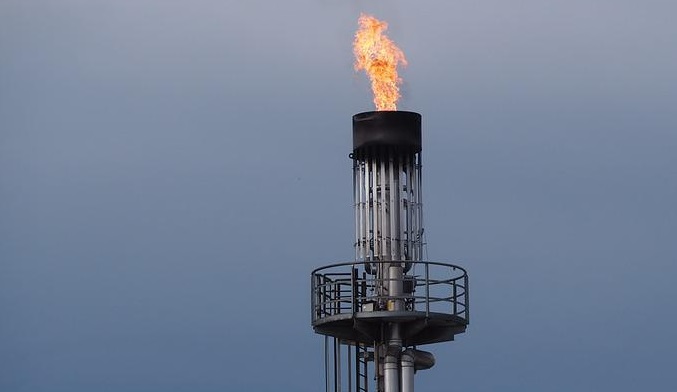President Vladimir Putin has signed a decree which will take full control of the Sakhalin-2 gas and oil project in Russia’s far east, setting the stage to possibly seize the ownership interests of both Shell Oil and two Japanese companies, Mitsui and Mitsubishi. Together, the three nations hold just under 50% ownership of the project.
The five-page order will create a new firm which will take control of all rights and obligations of Sakhalin Energy Investment Co. The order will give responsibility to the Kremlin to decide whether or not the foreign partners will be allowed to retain their ownership. Any Sakhalin-2 stakeholders have one month to apply for shares in the new Russian company, but all final decisions will fall to Moscow.
Russian State energy company Gazprom holds half of all Sakhalin-2 stock shares, plus one share at present. The project presently accounts for roughly 4% of all the world’s Liquid Natural Gas LNG production, turning out about 12 million tons of LNG per year. That gas shipped mainly heads to Japan, South Korea, China, India and other Asian countries.
Although Moscow has indicated it has no intention of disrupting Sakhalin-2 deliveries, the move does have the potential to rile the international LNG market. Japan imports 10% of its LNG from Russia, the vast majority under a long-term contract with Sakhalin-2. Were those deliveries to be disrupted, Japan would have to purchase its gas from elsewhere in a market already stretched thin from various issues, from reductions in Russian pipeline outputs to Europe from a damaged turbine, to an explosion in a major export facility in Texas.
Lucy Cullen, a principal analyst from consultancy Wood Mackenzie said, “Russia’s decree effectively expropriates foreign stakes in the Sakhalin Energy Investment Company, marking a further escalation in ongoing tensions.”
The new decree is part of a series of moves by the Kremlin, the next of which is a new law which will allow the state to simply seize any assets of foreign companies which decide to stop doing business within Russia.
For its part, Shell had been planning to exit the Sakhalin-2 project where it holds a 27.5% stake, as part of a plan to exit, “all Russian hydrocarbons,” and had been courting buyers. It said it is still processing what the Russian order will mean for its business interests.
Japan, which as a nation is heavily dependent on the gas from the project, has said it does not intend to surrender its interests in Sakhalin-2.
Japan’s Industry Minister Koichi Hagiuda has said Japan does not consider the order a requisition, when he told reporters, “The decree does not mean that Japan’s LNG imports will become immediately impossible, but it is necessary to take all possible measures in preparation for unforeseen circumstances.”
Japan still holds 2-3 weeks of LNG storage on hand, and it has been asking US and Australian partners to prepare to offer alternative supplies.
Some believe this move will ultimately cost Russia more than it will gain however, as the foreign companies involved had brought considerable expertise, and access to materials and parts required for maintenance of the project’s output.
Saul Kavonic, head of Integrated Energy and Resources Research at Credit Suisse predicted as the output of the project declines due to maintenance failures, “This will tighten the LNG market materially this decade.”

